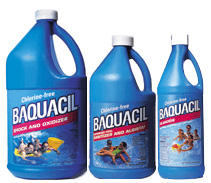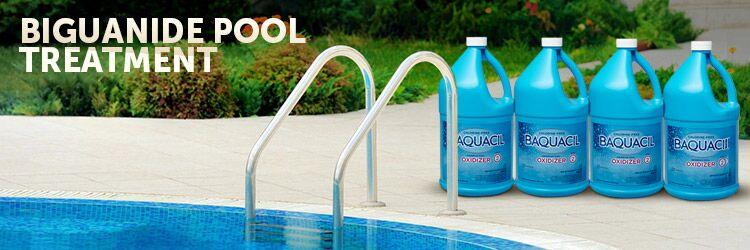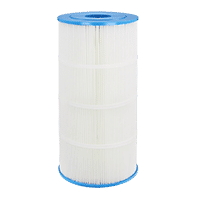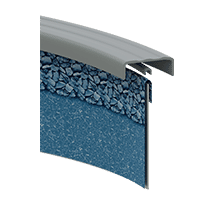There is some talk within the pool industry questioning the legitimacy of biguanide chemicals. Are biguanide chemicals as effective as chlorine? Is it truly an acceptable alternative for pool owners who do not like using chlorine?
What are Biguanides?
 Biguanide, or as the science elite say polyhexamethylene biguanide (PHMB), was originally designed as a surgical scrub disinfectant. In short, it acts as a sanitizer. Biguanide is one of the only non-halogen chemicals approved for sanitation by the Environmental Protection Agency (EPA). Biguanide is, in fact, a sanitizer. There’s no debate about that. If you wanted to use biguanide to clean your swimming pool, or surgical gear apparently, you can. The question is, is it a viable replacement sanitizer for chlorine? Does it produce all of the same benefits that chlorine yields? Should you be using it in your pool instead of chlorine?
Biguanide, or as the science elite say polyhexamethylene biguanide (PHMB), was originally designed as a surgical scrub disinfectant. In short, it acts as a sanitizer. Biguanide is one of the only non-halogen chemicals approved for sanitation by the Environmental Protection Agency (EPA). Biguanide is, in fact, a sanitizer. There’s no debate about that. If you wanted to use biguanide to clean your swimming pool, or surgical gear apparently, you can. The question is, is it a viable replacement sanitizer for chlorine? Does it produce all of the same benefits that chlorine yields? Should you be using it in your pool instead of chlorine?
INYO Pools collectively says NO and here’s why.
How Do Biguanides Work?
First and foremost, biguanides aren’t oxidizers. What that means is that it does not have the capability or chemical stability to break down other contaminants you bring into the pool such as your body oils, body waste, perspiration, or any other chemicals that your body releases once inside your pool. In addition to biguanide, pool owners need to purchase an additional oxidizer such as hydrogen peroxide to kill the extra contaminants. I don’t know about you but we prefer not to swim in a pool full of body sweat and lotions. Biguanides break through bacteria’s cell walls and cause them to burst from within. Then, the particles are wrapped in a gel-like substance that eventually sinks to the bottom of your pool.
Benefits of Using Biguanides
So what exactly do biguanides bring to the table, or pool rather, that chlorine doesn’t? For one- money. Using a biguanide, like Baquacil, is rather expensive. Generally speaking, pool maintenance isn’t cheap but in comparison to chlorine, even biguanides are pricey. As mentioned before, if you choose the biguanide route, you also have to purchase additional oxidizers. That means more money out of your pocket. One of the true benefits is that, unlike chlorine, it does not break down in high temperatures. Additionally, biguanides do not have a lingering smell and does not erode bathing suits and vinyl liners.
The Downfall of Biguanides
In addition to cost, biguanides also have a tendency to cloud and/or cause foaming. Typically, pool owners aren’t using enough oxidizers to rid the slime and mold problem that’s a by-product of the system. One of the biggest issues with using biguanides is its resistance to microorganisms in the water. Over time, some microorganisms become biguanide-resistant. Usually, shocking your pool is the only way to rid your pool of these microorganisms. However, shocking your pool also destroys all of the biguanide in your water. It’s definitely a lose-lose situation.
Although we’re not huge fans of switching from chlorine to biguanides, there are highly successful pools that use biguanides. Are you one of those pools? Is anyone using a biguanide system in their pool that they love? Let us know.












Leave a Reply